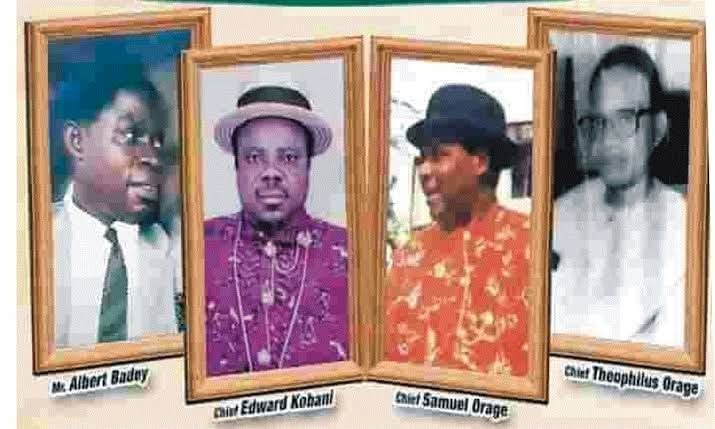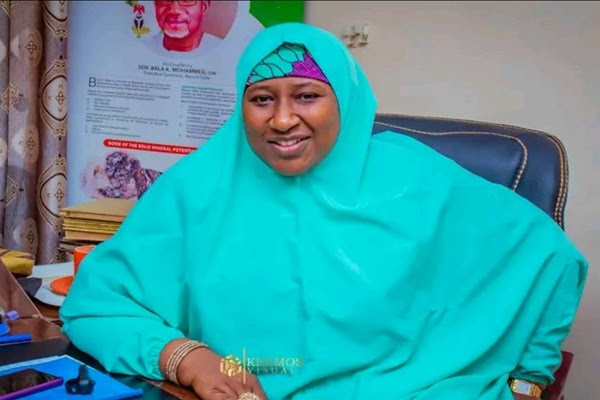President Bola Ahmed Tinubu has posthumously conferred the national honor of Commander of the Order of the Niger (CON) on the “Ogoni Four”—Albert Badey, Edward Kobani, Theophilus Orage, and Samuel Orage. The announcement was made during a meeting with the Ogoni Consultations Committee at the State House on Wednesday.
The four men were tragically killed and burned in 1994, an event that became the basis for the trial and execution of writer and activist Ken Saro-Wiwa and eight other Ogoni leaders, collectively known as the “Ogoni Nine,” by the military regime of Sani Abacha.
“May their memories continue to inspire unity, courage, and purpose among us,” President Tinubu said, as he called for reconciliation and unity within the Ogoni community. “Let us close ranks, put this dark chapter behind us, and move forward as a united community with one voice.”
The president assured the Ogoni people of his administration’s commitment to the region’s well-being, highlighting ongoing efforts toward peace, environmental remediation, and economic revival. He also expressed optimism about the resumption of oil exploration in Ogoniland, a move he believes is widely supported by the community.
In a significant development, President Tinubu has directed the National Security Adviser, Nuhu Ribadu, to immediately begin consultations with the Ogoni people, the Nigerian National Petroleum Company Limited (NNPCL), and other relevant stakeholders to finalize the modalities for restarting oil operations.
“A dead asset is not valuable to the community, the country, or the people,” the president stated. “The longer we procrastinate, the worse it is for everyone.”
Additionally, Tinubu instructed the Minister of Environment to make pollution remediation and environmental recovery a central part of the ongoing dialogue with the Ogoni people.
The honor for the Ogoni Four follows a previous gesture by President Tinubu, who, on Democracy Day, posthumously granted a state pardon to Ken Saro-Wiwa and the other members of the Ogoni Nine.
Nuhu Ribadu, who presented the committee’s report, confirmed that extensive stakeholder engagement had been conducted across all four Ogoni zones, including with local communities, traditional rulers, and the diaspora. He described the process as a “transformational” effort to restore hope and trust in a region long affected by neglect and conflict.
Don Baridam, the chairman of the Ogoni Dialogue Committee, noted that the report reflects the “collective will of the Ogoni people,” including demands for structured participation in oil production, environmental cleanup, and sustainable development frameworks.





